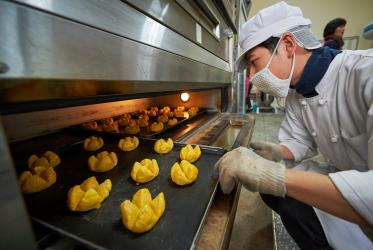By Fredrick Nzwili*
In the world’s newest nation the pandemic, conflict, severe food insecurity, locusts, and the floods have inter-mixed to create tragic consequences for the people who have suffered war for many years, according to the leaders.
“We, South Sudan Council of Churches (SSCC) leaders working within these communities appeal for assistance to be expedited to communities currently without humanitarian assistance,” Fr. James Oyet Latansio, general secretary said in an appeal also signed by other top SSCC church leaders, including Bishop Arkanjelo Wani Lemi, the chairman, Episcopal Church Archbishop Justin Badi Arama and Catholic Archbishop Stephen Ameyu of Juba.
“We call on global ecumenical church, faith communities, international donors, private sector and friends, and diaspora globally to support a scaled-up response within these communities.”
The East African nation—where many are Christians and followers of African traditional religions—is currently trying to end a deadly conflict that ignited in December 2013, barely two years after its independence.
Since then, 1.6 people are internally displaced and an estimated 7.5 million in need of humanitarian assistance, out of a population of 11.1 million people.
About half of the population is food insecure with famine threatening some areas, according to agencies. Nearly 300,000 children are facing severe to acute malnutrition.
“COVID-19 has decimated supply chain leading to escalating prices for staple foods and basic commodities,” said the leaders.
The leaders are appealing an estimated US $500,000 to meet the immediate needs of 100,000 people in Jonglei, Lakes, Upper Nile, Equatoria and Unity which they term as most affected by the crises. The money is needed to provide basic humanitarian needs including water, sanitation, health and nutrition, shelter, protection and food security, livelihoods and psychosocial support.
In the last few months, several South Sudan counties along the Nile River have been flooded after the river burst its banks due to extreme rains in catchment areas. An estimated total of 700,000 people have been displaced by the floods across the country.
Apart from the displacement, the floods–the worst in 60 years— have destroyed farms and livestock, and swept away homes, water points, pit latrines and schools.
At the moment, according to the United Nations, an estimated US $80 million is needed for overall flood response, including US $46 million in the immediate assistance to 360,000 people until the end of the year.
But ongoing conflict and inter-communal violence coupled with COVID-19 restrictions have hampered aid delivery efforts, while poor roads have made it impossible for humanitarian agencies to reached flood-affected areas.
SSCC, working with members of ACT Alliance and Caritas, has delivered a timely and appropriate response to humanitarian emergencies.
“Our standing partnership means these organizations can jointly deliver support to affected populations currently without assistance if adequate funds are available,” said Latansio.
* Fredrick Nzwili is a freelance journalist based in Nairobi, Kenya.







